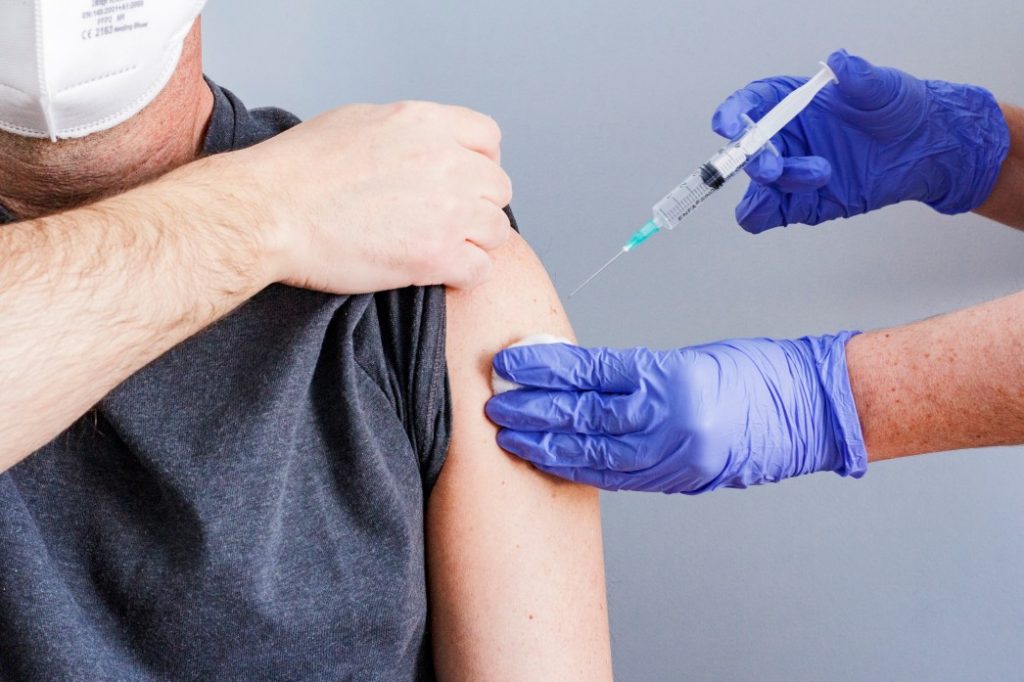But do incentives like this actually work?
The thing with vaccines, unlike most other types of medicine, is that for them to work properly almost everyone needs to take them. Scientists reckon that to reach herd immunity (where a disease can’t spread because enough people are resistant to it) about 70 percent of the population need to be vaccinated.
There are concerns that too many people are refusing the jab for some places to reach this threshold. Without herd immunity, Covid could mutate into more deadly or vaccine-defying forms. It also means less protection for those who have a medical condition which prevents them from being vaccinated.
What can be done? Some people think the answer is simple: force people to have the shot. But that seems ethically icky to many others, especially considering that coercive medical practices are linked to historical trauma for many marginalised groups.
Another approach would be to bar the unjabbed from accessing things they value, such as concerts, planes and workplaces. But there are drawbacks to that system too. It might simply give rise to a market for counterfeit vaccine cards. It might place unfair burdens and restrictions on people who cannot get vaxxed. It might just not sit right with many people, who may feel that your stance on vaccines shouldn’t stop you earning a living or participating in society.
Given these issues with the stick, many governments and businesses have instead turned to the carrot. Incentives for getting vaccinated can be found all over the world. In Hong Kong, your jab will enter you into a raffle for a million-dollar apartment. In the Philippines, the prize is a cow. New Yorkers can get free weed, and Indian women gold nose studs.
Of course such schemes can be expensive. Plenty of people may feel that public money shouldn’t be wasted on freebies that are either unnecessary (for the people who’d get jabbed anyway) or a reward for 'bad' behaviour (for people who otherwise wouldn’t have). Others may think it’s a worthwhile investment, considering the huge social and economic benefits that would come with herd immunity.
Cost aside, incentives are only worth doing if they work. Past economic studies have shown that offering rewards can indeed change people’s behaviour. One vaccines-for-cash study in England (for HPV jabs) saw a doubling in uptake. But it’s not yet clear whether this will hold true for Covid vaccines. Just 13 percent of anti-Covid-vax Americans said they’d get jabbed for $100, for example. The problem may be that the reasons behind a lot of vaccine hesitancy are high-stakes and deeply-held. If you think the vaccine is unsafe or being pushed for nefarious purposes you’re unlikely to be swayed by even the most alluring of rewards.
Given this, it would perhaps be more helpful for governments to put their money into understanding and alleviating the concerns of the vaccine-reluctant. This could take the form of public information campaigns, for example, or recruiting representatives from communities that don’t have a lot of trust in doctors and/or governments (often with good reason).
In some cases, states could concede that the vaccine-hesitant may have a point. Many people in non-Western parts of the world are only being offered lower-efficiency vaccines like Sinovac (which is 51 percent effective), which they are refusing because they are holding out for the higher-efficiency vaccines like Pfizer (95 percent effective). Getting the West to share some of their excess vaccines may therefore do more to boost vaccination rates than any cow lottery.
Read our explainer on: how economists think people think

